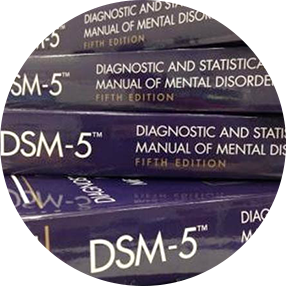Bipolar Disorder
What is bipolar disorder?
Bipolar disorder is a mood disorder. It causes you to have cycles of extreme mood changes that go beyond normal ups and downs. You will have periods of feeling joyful, energized, and excited (called mania). These are followed by periods of feeling sad and depressed. For this reason, it’s also called manic depression.
Depression affects your body, mood, and thoughts. It also affects how you eat and sleep, think about things, and feel about yourself. It’s not the same as being unhappy or in a blue mood. It’s not a sign of weakness or a condition that can be willed away. Treatment is often needed and is key to recovery.
Bipolar disorder affects equal numbers of men and women. But women tend to have more symptoms of depression than of mania. This disorder often starts in the teens or early adulthood.
What causes bipolar disorder?
Experts don’t know what causes bipolar disorder. They agree that many factors seem to play a role. This includes environmental, mental health, and genetic factors.
Bipolar disorder tends to run in families. Researchers are still trying to find genes that may be linked to it.
What are the symptoms of bipolar disorder?
Symptoms may occur a bit differently in each person. The following are the most common symptoms:
Depressive symptoms may include:
- Constant sad, anxious, or empty mood
- Loss of interest in things that you once enjoyed, including sex
- Feeling restless or irritable
- Inability to focus, think, or make decisions
- Low energy, tiredness (fatigue), or being slowed down
- Having thoughts of death or suicide, wishing to die, or attempting suicide (People with this symptom should get treatment right away.)
- Feeling worthless or hopeless
- Feeling undue guilt
- Changes in eating habits, or eating too much or not enough
- Changes in sleep patterns, such as fitful sleep, inability to sleep, waking up very early, or sleeping too much
- Headaches, digestive problems, or chronic pain
Manic symptoms may include:
- Very inflated self-esteem
- Need for less rest and sleep
- Easily distracted or irritable
- Racing thoughts
- Physical agitation
- Risky, aggressive, or destructive behavior
- Talking a lot and talking fast
- Very high or euphoric feelings (feeling overly happy)
- Increased sex drive
- Increased energy
- Unusual poor judgment. For instance, buying sprees, drug or alcohol abuse, or sexual indiscretion.
- Increased denial
Cultural background influences how people understand and react to the symptoms and diagnosis of bipolar disorder. It’s important to remember that when interacting with people and families who are managing this serious mental illness.
Contact Dr. Fogelson’s office to schedule an appointment to evaluate your bipolar disorder.

